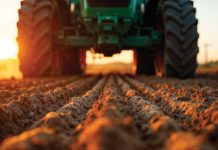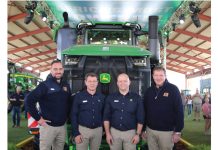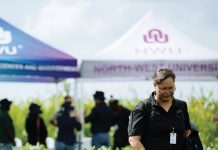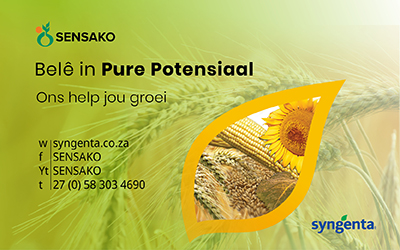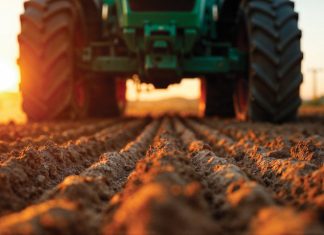
Studying agriculture offers a unique perspective on feeding a growing global population. Agricultural science explores farming from microcosm to macrocosm. It delves into ethical and environmental solutions for feeding the world.
It addresses environmental issues faced by producers, such as soil degradation, water scarcity, and biodiversity loss. Studying agriculture equips you to find solutions that balance productivity with ecological sustainability.
As the world population expands, the demand for food increases. Governments and global corporations seek experts who understand agriculture’s impact on food security, economic stability, and environmental health.
Studying agriculture provides a pathway to contribute meaningfully to these critical areas, offering exciting opportunities for students interested in this field. In this article SA Graan/Grain highlights some of the courses provided by the universities who responded to our media enquiry.
AgriSciences at Stellenbosch University
According to Dr Pieter Swanepoel who is a senior lecturer and researcher at the Faculty of AgriSciences at Stellenbosch University (SU), agricultural programmes at the institution are held in high esteem at national and international levels. This is due to the quality of SU’s training and research and its role as consultant in the agricultural and forestry industry. ‘Students enrolled in the faculty’s undergraduate and postgraduate programmes are expertly trained to become leaders and managers in the various sectors of the industry. Throughout South Africa – and abroad – alumni of the faculty can be found in top positions.’
The faculty is ranked among the top 25 in the BRICS countries, and among the top 100 globally in the latest QS World University Rankings. It remains a key stakeholder in addressing key agricultural challenges in South and Southern Africa, ensuring that the region’s natural resources are utilised and managed ethically and scientifically, ensuring sustainable conservation of our natural resources.
‘Our undergraduate and postgraduate programmes prepare students to act as competitive leaders and managers in the various sectors of both agriculture and forestry. The faculty focuses on creating opportunities where all students can develop their full potential. This is done by researching and using the most suitable methods of teaching to encourage students to obtain all facets of the graduate qualities,’ Dr Swanepoel added.
Bachelor’s programme in Plant and Soil Sciences
The bachelor’s programme in Plant and Soil Sciences is one of the qualifications offered by the faculty and leads to the qualification BScAgric. The programme covers training in the production of agronomical field crops, pasture crops, vegetable crops, fruits and vines. For each crop, various subjects, such as crop production, biochemistry, soil science, agricultural water science, agricultural economics, genetics, entomology, nematology, plant pathology, and biometry are integrated into a meaningful whole. Within this whole, students follow a combination of modules on ecology, development, physiology, production, breeding, nutrition, soil and water management, as well as harmful plant pathogens, insects, nematodes and their control in an environmentally friendly, sustainable and economically acceptable way.
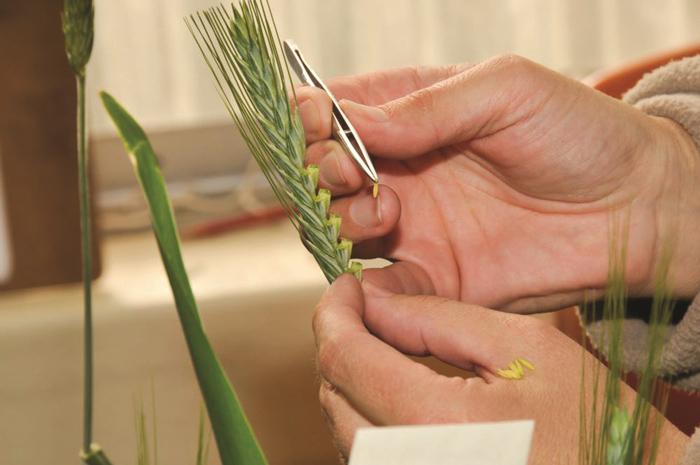 There are three fields of study within the programme. These fields of study with the applicable majors are:
There are three fields of study within the programme. These fields of study with the applicable majors are:
- Crop Production Systems – Agronomy, Horticultural Science or Grapevine Sciences in combination with Entomology, Plant Pathology or Agricultural Economics or Agricultural Economics in combination with Animal Science and Agronomy
- Crop Protection and Breeding – Plant Pathology and Entomology or Genetics
- Soil and Water Management – Soil Science and one of Agronomy, Horticultural Science, Plant Pathology, Chemistry or Grapevine Sciences
‘It will remain a high priority for the faculty to contribute to the global competitiveness of the South African agricultural sector and related industries through its teaching and research activities, and its ability to respond to the unique regional challenges related to food security, climate change and the sustainable use of natural resources. The areas of natural resource economics and sustainability have also been identified as a key focus area for the faculty. The expansion of influence in Africa through the exchange of regional knowledge systems also remains a high priority, unlocking academic opportunities for the faculty and its partners and stakeholders,’ said Dr Swanepoel.
For more information, consult the AgriSciences Yearbook by visiting https://agric.sun.ac.za/
Agriculture programme at North-West University
Studying agriculture at North-West University (NWU) offers several career paths. Here are some key points about the agriculture programme at NWU:
Economic impact and job opportunities
In South Africa, agriculture plays a crucial role in adding economic value, providing jobs, and enabling rural development. According to Bertie Jacobs, communication specialist at the NWU’s Potchefstroom campus, the university recognises the importance of the agricultural sector and aims to produce well-rounded graduates to serve its needs.
The agriculture programme at the Potchefstroom campus was founded in 2019, preparing graduates for an industry that contributes significantly to the country’s economy and job market.
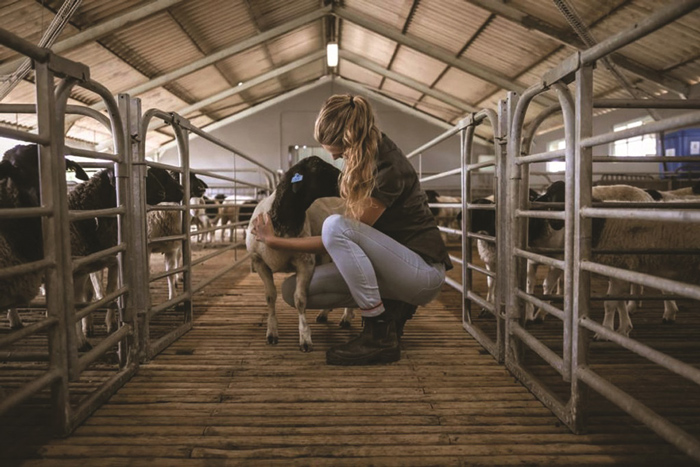
Focus on sustainable crop production
The programme emphasises sustainable crop production using the latest methods and technologies available. Students learn how to care for the soil while ensuring optimal crop production. This knowledge is essential for maintaining agricultural productivity while preserving natural resources.
Sub-disciplines and career paths
NWU’s agriculture programme covers sub-disciplines such as agronomy and soil science. Graduates can pursue careers as agronomists or soil scientists in the agricultural field. Additionally, the programme prepares students for roles in environmental science and management.
Unique features of NWU’s programme
NWU stands out by providing students with a basic agricultural economics background. This ensures that graduates understand the economic impact of their work and recommendations in the field. The combination of scientific knowledge and economic awareness equips students for success in various agricultural roles.
Degree options at the Potchefstroom campus
- BSc in Agricultural Sciences with Agronomy and Agricultural Economics
- BSc in Agricultural Sciences with Agronomy and Soil Science
- BCom in Economic Sciences with Agricultural Economics and Risk Management
Degree options at the Mahikeng campus
- BSc in Agricultural Sciences with Agricultural Economics
- BSc in Agricultural Sciences with Animal Health
- BSc in Agricultural Sciences with Animal Sciences
- BSc in Agricultural Sciences with Agronomy and Horticulture
Postgraduate opportunities
For students interested in further studies, NWU offers postgraduate programmes, including the following:
- MSc in Agriculture with specialisation in Soil Science or Agronomy (at the Potchefstroom campus) and Agricultural Economics, Agricultural Extension, Animal Health, Animal Science or Crop Science (at the Mahikeng campus)
- PhD in Agriculture with focus areas in Agronomy, Soil Science, or Agricultural Economics (at the Potchefstroom campus) and Agricultural Extension, Animal Health, or Animal Science (at the Mahikeng campus)
Diploma programmes
- Diploma in Animal Science
- Diploma in Plant Science (with Crop Production)
- Diploma in Animal Health
The NWU is currently also in the process of establishing a veterinary school.
For more information contact Ashleigh Pieterse at Ashleigh.Pieterse@nwu.ac.za.
The College of Agriculture and Environmental Sciences at Unisa
One of the advantages of studying at the University of South Africa (Unisa) is that students are able to study and work simultaneously as the qualifications are presented via distance learning mode.
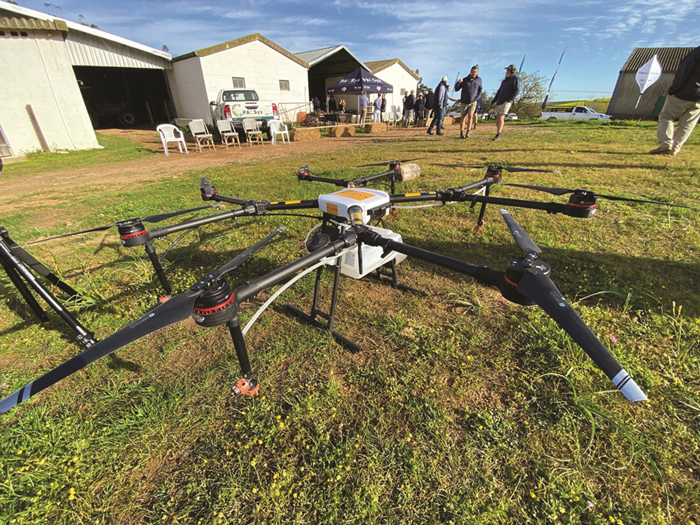 The College of Agriculture and Environmental Sciences offers the following qualifications:
The College of Agriculture and Environmental Sciences offers the following qualifications:
Diploma in Agricultural Management
The purpose of this qualification is to train low-level managers and technicians in the agricultural sector to meet the current critical shortage of skilled people in the sector. There is a need to develop skilled people in agriculture to ensure the relevance of the discipline in addressing agricultural sector development for food security and sustainable environment. The duration of the qualification is three years (minimum).
Diploma in Animal Health
The primary purpose of the diploma is to qualify learners as animal health technicians who will be competent in applying animal health care, disease control and management techniques in the prevention and control of animal diseases in order to support animal and veterinary public health. The duration of the qualification is three years (minimum).
Advanced Diploma in Agricultural Management
This qualification provides students with specialised knowledge and skills in the areas of economics and management principles that are used in the production, transformation and marketing of food and other agricultural products. These principles are used to produce and add value to high-quality agricultural products so that these products have economic, aesthetic, social and cultural value. The qualifying learners will be exposed to and acquire skills, knowledge, values, and attitudes relevant to agricultural production. Qualifying learners with this skill may be employed by the Department of Agriculture, Fisheries and Forestry as well as the Land Reform Department to play a major role in providing advisory services in agricultural management to land reform beneficiaries in the country to improve productivity in their various agricultural undertakings. The duration of the qualification is three years (minimum).
 Advanced Diploma in Animal Health
Advanced Diploma in Animal Health
The primary purpose of the qualification is to provide students with a strong industry-oriented focus. The qualification also serves to provide students with the advanced knowledge, cognitive and conceptual tools and practical techniques for higher education in animal health. It may provide intellectual enrichment, enhance flexibility in the light of changing circumstances in this field, enable a change in career path or offer an intensive, focused and applied specialisation which meets the requirements in the labour market of the animal health industry. The graduates of this advanced diploma will have a deep and systematic understanding of current thinking, practice, theory and methodology in an area of specialisation. It is therefore particularly suitable for continuing professional development.
Bachelor of Science
The Bachelor of Science in Agricultural Science has three specialisation streams: Agricultural Business and Management, Animal Science and Plant Science.
This qualification provides students with knowledge and skills to meet challenges facing agriculture and engage them in the initiatives aimed at solving problems facing agriculture in the country. A qualified learner will be able to use sustainable agricultural principles and practices in the agricultural environment and show an awareness of the social responsibility needed by citizens towards the environment; provide leadership in general in the management of operations of agricultural sub-sectors; and solve problems affecting the agriculture sector using various skills and knowledge. The duration of the qualification is four years (minimum).
Postgraduate Diploma in Agriculture Agri-Business
The primary goal is to enable working professionals from various agricultural disciplines to undertake advanced reflection and development using systematic current thinking, practice and research methods in the area of specialisation. The qualification demands a high level of theoretical engagement and intellectual independence. The curriculum includes research methodology and a project under supervision. This postgraduate diploma is a non-professional qualification which will serve to strengthen and deepen learner knowledge in the field of agriculture. The duration of the qualification is four years (minimum).
For more information send an email to CAESenquiries@unisa.ac.za or visit www.unisa.ac.za.
Agricultural offerings at the University of the Free State
The University of the Free State (UFS) builds on agricultural sector development by offering comprehensive agricultural programmes, designed for sustainability and industry readiness. Programmes include seven different BSc degrees in agriculture, focused on scientific research; seven BAgric degrees, emphasising sustainable production and practical experience with training at the Paradys experimental farm; and a Bachelor of Sustainable Food Systems, which was launched in 2024 with its first intake of students, geared towards agro-processing and food value chain management. The Paradys experimental farm supports these programmes with advanced research facilities in dairy, fermentation, crop and animal production.
The Bachelor of Science in Agriculture (BScAgric) makes provision for seven fields of study, namely:
- Animal Science
- Plant Breeding
- Plant Pathology
- Agrometeorology
- Soil Science
- Agronomy
- Agricultural Economics
The Bachelor in Agriculture (BAgric) makes provision for seven fields of study, namely:
- Agricultural Economics
- Agricultural Management
- Agricultural Extension
- Animal Production Management
- Crop Production Management
- Mixed Farming Management
- Irrigation Management
Also offered is the Bachelor of Sustainable Food Systems with its focus on agro-processing and addressing the entire food value chain, its management processes and systems.
The UFS was allocated a South African Research Chairs Initiative (SARChI) Chair in Disease Resistance and Quality in Field Crops by the National Research Foundation. Managed by Prof Maryke Labuschagne, this chair is now in its second five-year cycle. It has a strong focus on advancing food security and nutrition in South Africa and the rest of Africa, contributing to poverty reduction and achieving sustainability goals. The chair focuses on plant breeding for disease resistance and quality in field crops.
Projects done under the auspices of the chair by a team of MSc and PhD students, as well as three postdoctoral fellows, include the following:
- Monitoring the rust disease causing fungal populations of important crops in South Africa.
- Survey and genotypic characterisation of rust species of South African grasses.
- Genetic reconstruction of South African cereal rust populations using herbarium specimens.
- Sequence analysis of specific genes in the South African wheat stem rust population.
- Genetic and functional analysis of tolerance against fungicide application in the South African wheat stem, stripe and leaf rust populations.
- Inhibition of wheat stem, stripe and leaf rust urediniospore germination and growth from smoke-derived compounds.
- Molecular survey of Berberis species in South Africa.
- Molecular and biochemical characterisation of adult plant disease resistance response of wheat varieties against stem rust infection.
- Investigating fitness factors other than virulence that may result in the dominant occurrence of wheat rust races in South Africa.
- The molecular basis of all stage resistance of selected South African wheat cultivars and potential new germplasm sources.
- Improving combined rust and Fusarium head blight resistance in pre-breeding wheat lines.
- Comparison of pre-breeding wheat lines with different levels of Fusarium head blight resistance to the accumulation of Fusarium mycotoxins.
- The influence of heat and drought stress on gluten protein and quality in durum and bread wheat.
- The expression and influence of the wheat breadmaking gene in South African commercial bread wheat cultivars, and its influence on gluten protein and quality.
- Quality and gluten protein characteristics of a world-wide collection of durum wheat cultivars.
- Resistant starch in South African wheat cultivars as a source of dietary fibre.
- Proteomics as a tool for gluten protein analysis under biotic and abiotic stress.
- Maize, cassava and sorghum biofortification for zinc, iron, provitamin A, and essential amino acids.
- Nutritional value of soybean, cowpea and Bambara bean, and genetic improvement of nutritional value.
Conclusion
The vast array of research done on these and other campuses in South Africa plays a crucial role as it leads to the development of new farming methods and techniques.
As pest infestations and soil erosion patterns change, research helps identify newer methods to tackle these challenges. It also guides producers in selecting suitable crops for specific soils and climates, as well as determining the right fertilisers and insecticides for better yields.
Research further helps develop strategies to face weather-related challenges, such as extreme temperatures, droughts, or floods and provides essential indicators about crop and land status. Armed with this data, producers can make informed decisions on when to sow, irrigate, and harvest, maximising yield and minimising damage.



